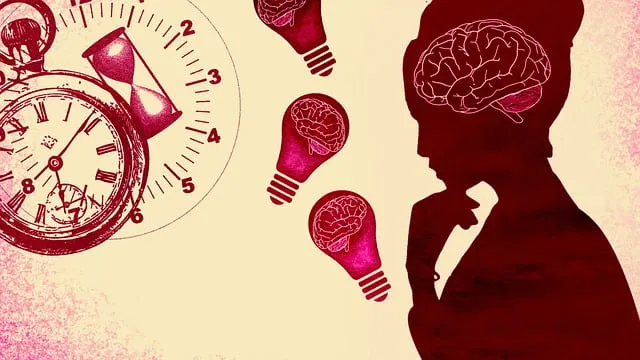Mental health advocacy initiatives, exemplified by Kaiser's comprehensive approach, are vital in raising awareness, breaking down barriers, and promoting access to essential services. By offering a range of resources like coping skills programs, stress management workshops, and podcasts, Kaiser empowers individuals to manage their mental wellness holistically. These strategies include early interventions, education, and demystifying the process of seeking help. The Golden how to get mental health services through Kaiser approach addresses affordability, stigma, and accessibility challenges, ensuring diverse, tailored support for all communities. Future initiatives could further leverage 'mind over matter' principles and risk management planning for sustainable, community-focused mental healthcare.
Mental health advocacy initiatives are a powerful force for driving awareness and improving access to critical services. In today’s digital era, understanding mental health advocacy is more crucial than ever. This article explores strategies to unlock mental healthcare through Kaiser, specifically focusing on how individuals can navigate and access available services. We delve into effective advocacy techniques, common barriers, and real-world success stories, providing a comprehensive guide on the golden how to get mental health support via Kaiser, ultimately fostering empowered communities.
- Understanding Mental Health Advocacy: A Necessary Push for Awareness and Access
- Kaiser's Role in Facilitating Mental Healthcare: Unlocking Services for Members
- Strategies for Effective Mental Health Advocacy: Empowering Individuals and Communities
- Overcoming Barriers: Common Challenges in Accessing Mental Health Care and Potential Solutions
- The Impact of Advocacy Initiatives: Real-World Success Stories and Future Directions
Understanding Mental Health Advocacy: A Necessary Push for Awareness and Access

Mental health advocacy initiatives are a crucial push for raising awareness and improving access to mental health services. Understanding advocacy involves recognizing that it’s more than just supporting individuals; it’s about promoting policies, practices, and programs that ensure everyone has equal opportunities to seek help. In today’s digital era, where mental health issues are increasingly recognized as common yet often overlooked, these initiatives play a vital role in breaking down barriers.
One notable example of how to get mental health services through Kaiser is their extensive network of resources tailored to various needs. This includes coping skills development programs, stress management workshops organized by mental health professionals, and conflict resolution techniques training sessions. By providing such tools, organizations like Kaiser empower individuals with effective strategies for managing their mental wellness proactively.
Kaiser's Role in Facilitating Mental Healthcare: Unlocking Services for Members

Kaiser plays a pivotal role in facilitating access to mental healthcare services for its members. With a comprehensive network of healthcare providers and facilities, Kaiser offers a range of resources designed to support mental wellness. Members can leverage various initiatives, such as Compassion Cultivation Practices, Mental Wellness Coaching Programs, and Development opportunities, to enhance their understanding and management of mental health conditions. Additionally, the production of engaging Mental Wellness Podcast Series provides accessible platforms for learning and connection.
These strategies work in tandem to unlock services that cater to diverse needs, ensuring members have the tools and resources necessary to navigate and improve their mental health journeys. By prioritizing mental wellness through these innovative approaches, Kaiser demonstrates its commitment to supporting not just physical health but also the intricate interplay of emotional and psychological well-being.
Strategies for Effective Mental Health Advocacy: Empowering Individuals and Communities

Mental health advocacy initiatives focus on empowering individuals and communities to navigate and access mental health services effectively. One powerful strategy is to educate people on how to get mental health services through established providers like Kaiser. This involves spreading awareness about available resources, demystifying the process of seeking help, and breaking down barriers such as stigma or misconceptions. By providing clear guidance, communities can encourage loved ones to take that first step towards healing.
Additionally, fostering a culture of self-care practices and coping skills development is vital. Mental health professionals play a crucial role in conducting risk assessments to identify individuals at high risk and provide early interventions. Equipping people with healthy coping mechanisms allows them to manage their mental well-being proactively. Self-care practices, combined with accessible services like those offered by Kaiser, create a supportive ecosystem that promotes resilience and overall mental health within communities.
Overcoming Barriers: Common Challenges in Accessing Mental Health Care and Potential Solutions

Accessing mental health care can be a significant challenge, with many barriers preventing individuals from receiving the support they need. One of the primary obstacles is the stigma surrounding mental illness, which often leads to delays in seeking treatment. Overcoming this involves increased awareness campaigns and education programs that promote emotional regulation and reduce societal judgments.
Another critical issue is affordability and insurance coverage. Kaiser’s how-to-get-mental-health-services guide offers valuable insights for navigating these complexities. By expanding access to affordable care, implementing burnout prevention strategies for healthcare providers, and ensuring cultural competency training, we can make mental health services more accessible. This includes tailored support for marginalized communities, addressing language barriers, and promoting diverse treatment options to cater to individual needs.
The Impact of Advocacy Initiatives: Real-World Success Stories and Future Directions

Mental health advocacy initiatives have a profound impact on communities and individuals alike. By raising awareness, reducing stigma, and advocating for better access to services, these efforts directly contribute to improved mental wellness outcomes. One notable example is Kaiser’s approach to providing mental health services, illustrating how integrated care models can significantly enhance patient experiences. The Golden how to get mental health services through Kaiser strategy focuses on ensuring accessibility and affordability, leading to increased utilization and positive real-world results.
Looking ahead, the integration of mind over matter principles in advocacy efforts holds promise for empowering individuals to take charge of their mental health. Additionally, risk management planning tailored for mental health professionals can mitigate challenges and ensure sustainable service delivery. By fostering self-esteem improvement, these initiatives not only support clients but also strengthen the overall resilience of communities, paving the way for a brighter future where mental health is prioritized and effectively addressed.
Mental health advocacy initiatives play a crucial role in increasing awareness, improving access to care, and empowering individuals and communities. By understanding the barriers to mental healthcare and implementing effective strategies, such as those highlighted in this article, we can create a more supportive environment for those seeking help. Kaiser’s efforts in unlocking services for its members serve as a promising model for others to follow, demonstrating the impact of advocacy on real-world success stories. Moving forward, continuing to advocate for mental health will be vital to ensure that everyone has access to the golden how to get mental health services they deserve.






